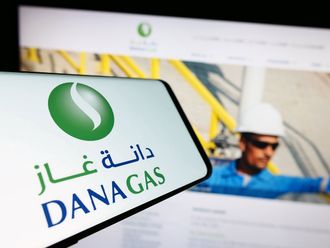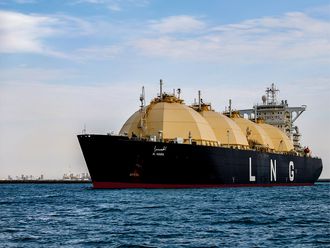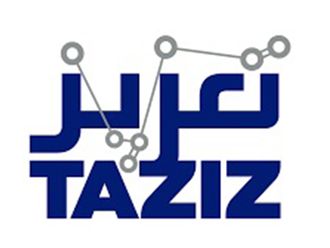New York: The prospect of oil topping $150 (Dh550) a barrel within a year has become the biggest bet in the options market as the US and Europe work to limit Iran's crude sales.
The number of outstanding calls to buy oil at $150 next December has jumped 29 per cent since a November 8 United Nations inspectors' report on Iran's nuclear programme, to more than any other option on the New York Mercantile Exchange. The contracts equate to about 38 million barrels of oil, or 43 per cent of daily global demand, based on data from the US Energy Department.
"People are taking a long shot and buying cheap insurance," Fred Rigolini, vice-president of Paramount Options in New York, who has traded crude options for 23 years, said in a telephone interview on December 5. "They'll probably play this through the spring."
The price of the $150 calls has risen 9.2 per cent to $1.30 since the day before the UN report was published, outpacing the 5.2 per cent gain in oil futures. Crude will surpass $250 a barrel if nations threaten to ban purchases from Iran, the Tehran-based Shargh newspaper cited Ramin Mehmanparast, an Iranian foreign ministry spokesman, as saying December 4. Iran is Opec's (Organisation of Petroleum Exporting Countries) second-biggest producer.
Open interest, the number of contracts not closed or delivered, in options to buy crude at $150 next December increased 11 per cent on November 22 alone as the US, UK and Canada imposed new sanctions on Iran's financial system, including measures that may make it more difficult for buyers to pay for Iranian crude.
Targeting oil industry
Outstanding options numbered 38,023 on December 6, data from the Nymex show. The second-largest open interest was 35,453 puts, or bets to sell oil, for $80 in December 2012.
"The rise in open interest in deep out-of-the-money calls reflects investors looking to either profit from an oil price spike or to protect the rest of their portfolio if things do take a turn for the worse," Seth M. Kleinman, European head of energy research at Citigroup in London, said in an e-mailed report on December 6.
A European ban on Iran's exports still may not boost prices because the country's remaining trading partners, including China and India, would have increased power to negotiate discounts, depriving the country of cash while leaving world supplies little changed, Mark Dubowitz, director of the Iran Energy Project at the Foundation for Defence of Democracies, a policy group in Washington that supports sanctions, said in a telephone interview last week.
The US and Europe are targeting Iran's oil industry in an effort to deprive President Mahmoud Ahmadinejad's government of cash to sustain its nuclear programme. The International Atomic Energy Agency said November 8 that Iran continued working on nuclear weapons at least until last year, including efforts to shrink a Pakistani warhead design to fit atop its ballistic missiles.
"There's a lot going on that has justifiably amped up the security premium," John Kilduff, a partner at Again Capital, a New York-based hedge fund that focuses on energy, said in a telephone interview on December 5. "That's why you see the interest in the $150 strikes on these call options."
Demand for June $160 call options jumped after protesters attacked the British embassy in Tehran on November 29.
New steps in pipeline
The US Senate unanimously approved a measure on December 1 that, if enacted into law, ramps up sanctions against Iran's central bank and will increase financial obstacles to buying the country's crude. The Obama administration opposed the legislation because it may drive oil costs higher.
West Texas Intermediate oil, the US benchmark contract for crude delivered to Cushing, Oklahoma, advanced to a 31-month high of $113.93 a barrel in April after uprisings toppled leaders in Tunisia and Egypt and fighting to force out Muammar Gaddafi erupted in Libya, disrupting exports from a country that is home to Africa's largest proved crude-oil reserves. Futures for January delivery were at $100.73 yesterday in New York. Oil is Iran's biggest export, earning the country $73 billion in 2010.












